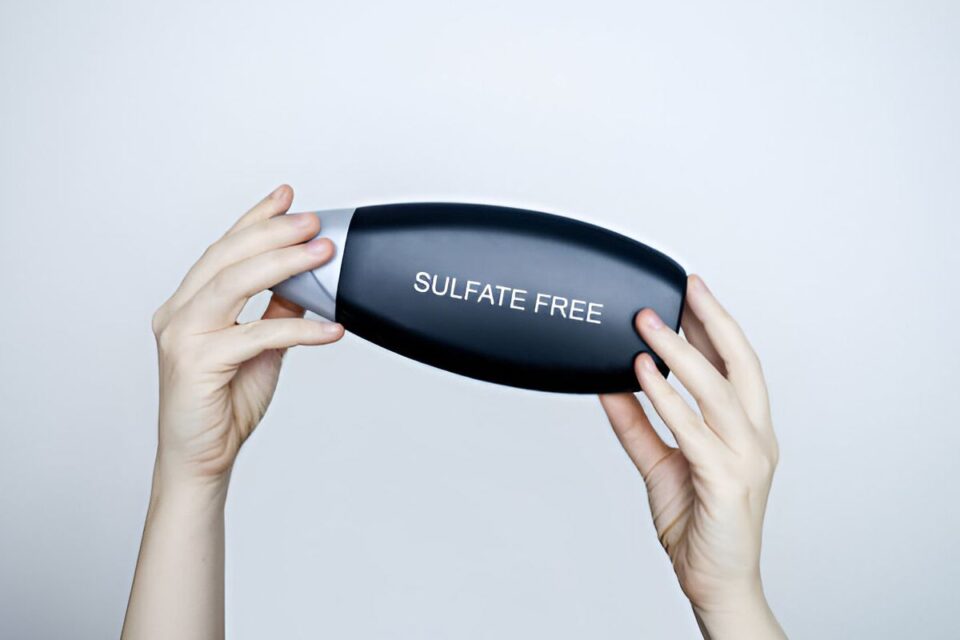Table of Contents
Introduction
The shampoos are more of a cleansing product. Almost all hair types use these when they become sticky with sweat, oil secretions and pollutants attracted to the hair from the air. Shampoos to save your hair from all these wanted hair and scalp clinging guests is its main objective. Now, sulphates in shampoos help in quicker removal of dirt and sebum deposit on the hair-scalp duo. It works faster into the deep recesses of your hair strands tiding them properly. In two compounds these sulfates mainly appear in the shampoo composition. Sodium laureth sulfate and sodium lauryl sulfate appear on shampoo bottles and other cleansing products such as detergents and household cleaners. Their molecules wrap around the grime particles and slide off easily with the aid of water.
In recent studies, the presence of this compound has caught the attention, as it seems to erode the hair cells and the same applies to the scalp surface. Certain users experienced mild tingling sensation and the itch tendency increasing at that. It actually means that the shampoos having these sulfates, reacted with the hair system resulting in the itch and tingling sensation.
Sulfate Concentration in Shampoos
At lower levels, the sulfate compounds in your shampoo ingredients is usually said to be safe. However higher concentration of sulfates and regular uses of such shampoos are damaging for your hair. It extracts and lays waste essential oil and keratin or the hair proteins from hair. The chemical nature of the sulfate included shampoos helps it to mix with water and lathers in a nice foamy consistency.
But these sulfates are bad for your hair when the bigger concern is addressed: the health of your hair especially when you do not have excessively oily hair or sweaty scalp. Even in small quantities, the sulfates harm the hair and scalp. In extreme cases it triggers and accelerates hair fall. Hair ends split faster on repeated usage, along with hair thinning and breakage. This situation persists when proper hair treatment is not taken on time such as with essential oils, keratin restoration and hydrating conditioner actions.
Switch to Sulfate free Shampoos
Even though the sulfate free shampoos are not damaging like the ones with sulfate compounds, their foaming and lathering capability is lesser. They do not mix easily with water like the sulfate shampoos. It does not give you that foamy satisfaction, but they are effective in cleansing the hair and scalp. They restore the hair protein in a proper manner. Same applies when it comes to control and reduction of hair fall, moisturizing and nourishments. So it becomes a win-win situation for both your scalp and hair cells to be cleansed with sulfate free Shampoos. They are definitely a must try alternative for the usual foamy sulfate based shampoos.
Washing hair with shampoos once a week is alright, when it comes to sulfate shampoos. But if you choose to cleanse your hair twice or thrice a week, then this choice would not suit at all. It can have negative effects on your hair quality and texture upon drying. So for more frequent washing one should opt for the sulfate free shampoos, with herbal compositions of honey, egg, aloevera, coco butter, Shea butter, natural oils such as olive oil, almond oil etc.
Sulphates and Paraben Alerts
Similarity, along with sulfates, the paraben containing shampoos in the cosmetic industry are popular. Yet they are seen with suspicion for their preservative nature. They extend and preserve the product life. Being purely chemical and artificial in nature, parabens and sulfates are clubbed together in the ‘to surly avoid’ list of shampoo ingredients. The sulfate and paraben free Shampoos have Shea butter, milk, hibiscus, herbal ingredients to repair and cleanse the hair strands at the same time of delicate pampering.
Most importantly, the shampoo users with sensitive scalp should avoid sulfate shampoos. This applies to those who have skin and scalp issues. Such problems should be dealt solely by herbal and medicinal properties enriched shampoos. Dermatologist recommendations can also be taken into note for avoiding such delicate situations. Surfactants derived from the coconut oil called cocobersines is another alternative for the usual sulfate based shampoos.
Conclusion
In the cosmetic industry, the chemicals are usually meant to be much more effective then the natural, readily available substances. These chemically superb shampoos to save your hair from excess oils and dirt deposits are best for ocassional uses only. The daily use and more frequently used ones need to be mild on your hair in all aspects of clearing excess oil and proper nourishment as well. The dry types of hair, split ends and weak hair types too must look for sulfate free shampoos for a better hair care routine.

